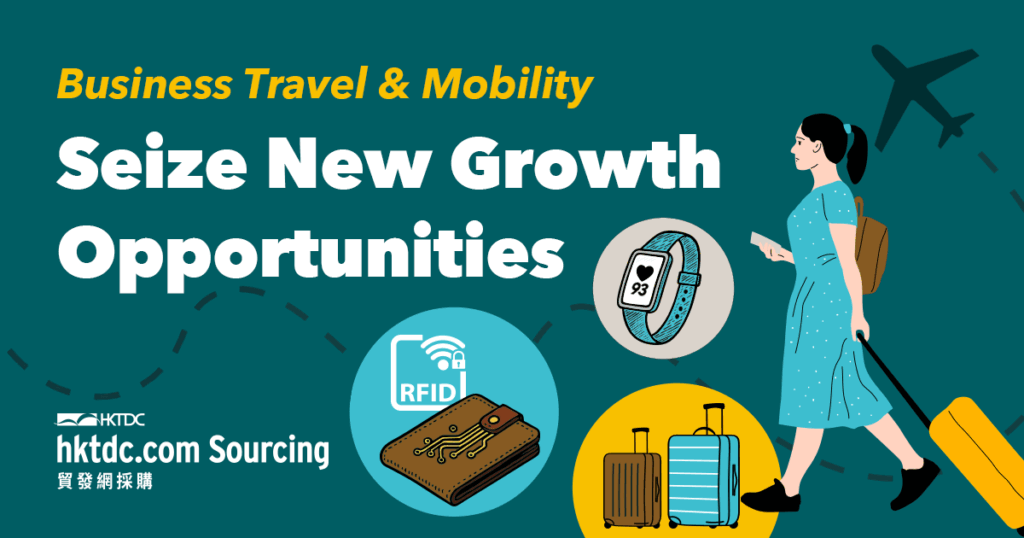The future of corporate travel is not merely an extension of the last decade—it’s a profound transformation that fuses innovation, resilience, and sustainability. As the world moves beyond pandemic disruption, the global business travel market is set for a new era of accelerated expansion, driven by technology adoption, strategic procurement, corporate mobility solutions, and shifting traveler behaviors. For procurement leaders, understanding these developments—and capitalizing on them with data-driven sourcing strategies—is critical to seizing growth through 2030.
From Post-Pandemic Recovery to Growth Trajectory
After unprecedented volatility, the business travel industry has found new footing. According to the Global Business Travel Association (GBTA), global business travel spending rebounded strongly to US$1.57 trillion in 2025, with projections surpassing US$1.8 trillion by 2026 and annual growth averaging 5–8% through 2030. This long-term expansion is fueled by renewed confidence in face-to-face engagement, the growing importance of relationship-driven sales and dealmaking, and robust demand for in-person training and supplier audits. Surveyed travel buyers indicate that 58% of corporations have increased travel budgets for 2025, recognizing that purposeful travel is now a strategic enabler—not just a cost center.
Core Drivers Shaping Corporate Mobility
Modern business mobility is shaped by four interconnected drivers, each reconfiguring procurement priorities and unlocking new value creation opportunities.
- Hybrid-Driven Travel Patterns
Hybrid work and flexible travel policies have altered the core structure of corporate itineraries. The GBTA finds over 60% of global companies now enable distributed teams to mix virtual collaboration with targeted, essential business travel. This hybridization results in more complex, multi-leg and multi-purpose business trips: professionals combine project work with client calls and remote office visits in a single journey, resulting in a 16% increase in multi-stop itineraries since 2023. Travel management systems and AI-powered scheduling tools—now adopted by over 40% of enterprise buyers—are essential for optimizing these new patterns.

- Regional “Proximity Power”
While global connectivity remains vital, there’s been a lasting shift toward regional and domestic business travel. In Asia-Pacific, domestic business trip volumes surged 46% in 2025, while Europe saw growth of 32% and North America 8%. The Organisation for Economic Co-operation and Development (OECD) reports that 59% of business travelers in 2025 prioritized intra-regional meetings over long-haul flights due to cost, time, and sustainability pressures. This “proximity power” enables faster decision cycles and deepens local relationships while decreasing carbon emissions: regional trips average 12–22% lower CO₂ output compared to intercontinental journeys. Sourcing strategies now emphasize local supplier networks, agile logistics, and flexible inventory, all crucial for business agility.
- Sustainability Imperatives
Sustainable business travel has moved to the top of the corporate agenda. A recent GBTA sustainability survey shows 79% of large organizations have formal sustainable procurement policies in travel, up from 53% in 2022. Over 70% now require carbon reporting on travel bookings, while 36% of business travelers say they actively select low-carbon options even if it means higher costs. Priorities now include booking eco-certified accommodation, renting electric vehicles (EVs), and opting for green corporate gifts such as products made from recycled or biodegradable materials—demand for these rose 18% year-on-year. New industry benchmarks from BCD Travel—a leading global corporate travel management company—highlight emissions-reduction targets of 25–50% across major business travel programs by 2030.
- Wellness & Technology Synergy
The convergence of wellness and technology is revolutionizing the business travel experience. The wellness travel market is forecast to double, from US$651 billion in 2022 to over US$1.4 trillion by 2027 (16.6% CAGR), according to Global Wellness Institute. Travelers expect health protection, mindfulness options, and onsite access to digital health platforms. Meanwhile, business travel technology continues its rapid adoption: 65% of large corporates have implemented AI-powered booking, mobile expense management, and health/safety apps for travelers—streamlining compliance and providing real-time risk mitigation. Practical integration of wellness into corporate mobility is now a key procurement benchmark.
Market Trends & Future Expectations
These four drivers provide the powerful foundation on which new trends are emerging in business travel. Building on these shifts, a series of transformative market trends is now shaping procurement practices and defining future opportunities for the next five years.
Bleisure—Business Meets Leisure
The global bleisure travel market (bleisure means business trips that include a leisure component, such as adding vacation days or personal activities to a work trip) is on track to reach US$960 billion by 2030 (CAGR 10.4%), as professionals routinely extend work trips to include leisure stays or family travel. Companies are responding by bundling work and leisure in policy and booking platforms, driving new demand for versatile products that can transition from boardroom to beach.
Digital Wallet & Contactless Payments
Travel fintech now underpins virtually every stage of the business trip. In 2025, the value of contactless transactions reached US$7.4 trillion, and 74% of travelers rely on digital wallets when travelling. Payment-enabled devices, secure RFID wallets, and mobile-optimized receipts are procurement essentials to safeguard travelers and simplify compliance.
Flexible Booking & Cancellation
Unpredictability remains a given: nearly 78% of business travelers faced trip disruptions in 2024, and organizations that offered flexible booking drove 4x higher conversion rates for travel and MICE (Meetings, Incentives, Conferences, and Exhibitions). Hybrid work also fuels the need for last-minute changes, so procurement teams must ensure suppliers can deliver rapid-response, penalty-free flexibility.

Heightened Health-Safety Expectations
Procurement must factor in persistent health and duty of care considerations. Near-universal expectations for hotel health certifications, personal protective kits, and digital safety alerts are now embedded in most corporate travel, with over 70% of buyers ranking health and sanitation as a top-three priority for hotel and air bookings.
Seamless Tech Integration
As business travel functions become increasingly digitized and automated, spend on business travel technology is projected to maintain an annual growth rate of over 15% through 2027. AI-powered chat and booking assist, facial recognition for check-in, and smart device integration are entering the mainstream. Sourcing must focus on products and suppliers that offer compatibility with global travel management systems.
All these trends set the stage for strategic sourcing in the next section, where modern procurement practices can directly shape performance and traveler satisfaction.
High-Growth Categories: Strategic Sourcing Opportunities
Translating these pivotal trends into actionable business outcomes, procurement leaders can unlock tangible value by focusing on four high-growth product categories that embody the evolution of the modern business travel environment.
1. Corporate Travel Gifts & Accessories
Market size in 2025 stands at US$54.3 billion, projected to reach US$100 billion globally by 2030 (CAGR 6.5%). Power banks and travel chargers account for 35% of sales, bolstered by a 12% increase in sustainable gifting purchases in 2024. Successful sourcing strategies now emphasize rapid pre-customization (lead times under 10 days), verified eco-labels, and modular design that can serve both professional needs and leisure travel. Procurement leaders are leveraging digital proofing and tiered pricing platforms to maximize value and minimize risk.
Source impactful gifts and accessories to elevate your brand presence and open doors to new partnerships. Act now to capture interest and drive business growth through memorable touches that set your company apart.
2. Business Travel Security Products
The corporate travel security products market will grow from US$12 billion in 2025 to US$20 billion by 2030 (CAGR 5.4%). Demand is driven by rising cyber risks (particularly with digital payments and remote log-ins), increased business travel insurance requirements, and stricter global compliance. RFID-blocking accessories, GPS-enabled locks and trackers, and biometric padlocks are key subsegments—RFID gear grew 18% in 2024 alone. Smart packaging and integrated travel app compatibility can help companies monitor product status and proactively respond to disruptions.
Tap into the booming demand for security products and expand your business footprint in this high-growth category. Now is the time for buyers to act—explore these sought-after solutions and unlock new revenue streams in the global business travel market.
Business Travel Comfort & Productivity Accessories
Ergonomics and productivity-enhancing accessories for business travel represent a US$61 billion market in 2025, growing to US$115 billion by 2030 (CAGR 7.1%). Modular organizers, memory foam pillows, convertible carry-cases, and hybrid laptop workstations are surging thanks to demand for bleisure gear and remote work enablement. Market data show a 15% increase in ergonomic pillow sales and 20% in convertible bag adoption for business travel in 2025. Successful procurement teams bundle these in traveler kits and establish direct supplier relationships to customize and scale as needs evolve.
Capitalize on rising demand for premium comfort and productivity accessories—categories fueling strong revenue growth in the global travel market. Take action now to capture new sales opportunities as companies and travelers invest more in enhancing every travel experience.
4. Smart Business Travel Electronics & Health Tech
This fastest-growing segment is expected to leap from US$45 billion in 2025 to US$170 billion by 2030 (CAGR 16.2%). The rise is powered by demand for AI-enabled wearables (sales up 22% in 2024), portable health monitors, multi-lingual translation devices, and secure cloud-synced health records for business travelers. Sourcing must factor in global warranty, platform interoperability, and tech certifications for seamless user experience and data protection.
Explore the high-growth potential of innovative electronics and health tech
—segments rapidly expanding with the shift toward digital, wellness-focused travel. Buyers sourcing these cutting-edge products are strategically positioned to boost profits and gain a lead in tomorrow’s business mobility landscape.

Outlook and Expectations: 2026–2030
Looking ahead, industry leaders and analysts agree that the future of business travel will be marked by continual outperformance of global GDP growth and rapid innovation. According to Grand View Research, the business travel market is projected to surge from US$1.63 trillion in 2024 to US$2.75 trillion by 2030—an impressive 8.2% CAGR, notably above the average forecast for world economic expansion over the same period. The Global Business Travel Association adds that worldwide business travel spending will surpass the US$2 trillion mark by 2029, with annual growth rates exceeding 6% through 2028, even as companies adapt to regulatory and economic uncertainties. McKinsey research also confirms that both domestic and intraregional travel are expected to drive this sustained acceleration, with corporate travel’s structural importance reinforced by technology investment, procurement innovation, and strategic category management. Bleisure travel and AI travel management solutions are now widely seen as core to future-ready programs, while category selection and supplier compliance will remain crucial levers for maximizing ROI in increasingly complex travel ecosystems.
Global regulatory requirements are also catalyzing profound change—not just in compliance, but in overall market growth and sales. The travel risk management services market, including duty-of-care, cyber safety, and emissions compliance, is projected to reach US$223.6 billion by 2031, with an annual CAGR of 8.1%. As organizations and suppliers co-create compliant, high-value solutions—from green-certified hotels to protected payments and internationally validated health protocols—business travel programs see direct financial returns. Industry analysts note that travel suppliers offering full compliance portfolios are maintaining sales growth rates 20–30% above market averages, especially as ESG and risk mandates become globally standardized. This convergence of physical health, digital security, and seamless payment technology will define procurement best practice and platform selection across the sector in the coming decade.
Powering the Next Decade of Corporate Mobility
As global business travel spending surges past the US$1.57 trillion milestone in 2025 and is forecast to surpass US$2 trillion by 2029, organizations that integrate hybrid mobility, regional proximity, proven sustainability, and technology-driven wellness will set the standard for business competitiveness and resilience in the years ahead. Strategic choices made today—from supplier partnerships to procurement systems—are investments in long-term agility, risk mitigation, and sustainable growth.
With the business travel environment growing more dynamic, having a trusted sourcing partner has never been more important. hktdc.com Sourcing is purpose-built for modern procurement needs, connecting companies with over 130,000 quality suppliers and facilitating more than 20 million business connections each year. This integrated global network empowers organizations to discover new suppliers, foster resilient partnerships, and expand confidently as mobility markets evolve. Start your sourcing journey now.
Bonus for Suppliers
As global demand accelerates for travel-related products—spanning business travel accessories, security solutions, ergonomic essentials, and smart electronics—buyers are actively seeking agile, reliable suppliers who can meet the needs of an evolving corporate travel market. If you specialize in innovative travel products or solutions, now is the time to stand out. Become a supplier on hktdc.com Sourcing to reach millions of engaged global buyers and connect directly with sourcing professionals shaping the next phase of business mobility.
Market Sizing & Growth
GBTA (Global Business Travel Association): Global spending recovery and forecasts (US$1.57T in 2025, >US$2T by 2029), post-pandemic trends, market sentiment, and corporate travel policy surveys.
Grand View Research, Statista: Business travel market projection to US$2.75T by 2030, CAGR calculations, and global business mobility outlook.
OECD, Sabre, Industry Surveys: Regional and proximity power—Asia-Pacific growth rates (+34–46%), European and North American growth, intra-regional travel trends.
Market Trends & Corporate Mobility Drivers
Global Wellness Institute, Travel Management Projections: Wellness travel market sizing, CAGR (US$651B in 2022 to >US$1.4T by 2027, 16.6% CAGR).
BCD Travel, GBTA Sustainability Reports: Sustainable procurement benchmarks, formal policy adoption (53%–79%), carbon accounting, and emissions-reduction targets.
PhocusWire, Payment Industry Reports: Digital wallet and contactless payment value (US$7.4T in 2025), 74% digital wallet usage among travelers, mobile payments.
Market Trends & Demand Shifts
Mordor Intelligence, OpenPR, Market Research: Bleisure market forecasts (US$611B in 2025, US$960B+ by 2030, 9.5–10.4% CAGR).
TravelPerk, MICE Conversion Studies: Booking flexibility trends, traveler disruption rates (78%), and 3–4x bookings via flexible policies.
GBTA Health & Safety Surveys, ATPI, HospitalityNet: Health, sanitation priorities (70%+), personal protection expectations.
Segment & Category Sizing
Industry and Market Research Reports:
Corporate Travel Gifts & Accessories, Comfort & Productivity Accessories, and Electronics & Health Tech: Market sizing and growth forecasts confirmed by ResearchAndMarkets, Coherent Market Insights, Fortune Business Insights, and more.
Business Travel Security Products: Market trends, revenue forecasts, and growth opportunities covered by Transparency Market Research, DataInsights, and Cognitive Market Research
Regulatory & Compliance Outlook
Travel Risk & Compliance Market Reports:
Market for risk management, duty-of-care, and compliance solutions (US$223.6B by 2031, 8.1% CAGR); compliance-driven supplier sales outperformance (20–30%)
Platform & Sourcing Data
HKTDC & Platform Reports:
130,000+ quality suppliers, 20M+ annual business connections, buyer engagement data, and platform usage patterns.







